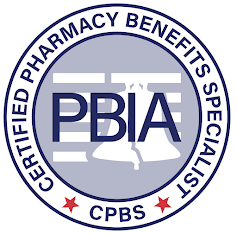Plan Sponsors Have a Fiduciary Duty to Employees that Includes Scrutiny of PBM-Owned Rebate Aggregators and other notes from around the interweb:
- Plan Sponsors Have a Fiduciary Duty to Employees that Includes Scrutiny of PBM-Owned Rebate Aggregators. Drug manufacturer rebates can be a valuable tool for controlling the rising costs of prescription drugs. Most manufacturers offer a rebate program through which they agree to return a part of the drug’s list price to plans in exchange for access to the plans’ drug “formulary”. Rebates are intended to flow through to the plan sponsors and benefit patients, reducing their overall drug spend. The rebate process has been hijacked by PBMs and their sister-aggregators. PBMs utilize rebate aggregators to negotiate drug manufacturer rebates on behalf of the plans they administer. In 2022, just three PBMs along with their rebate aggregators, controlled 79 percent of the market. Some of the largest rebate aggregators include Zinc (owned by CVS Caremark), Ascent (owned by Express Scripts), and Emisar (owned by United Healthcare).
- Pharmacy Benefit Managers: History, Business Practices, Economics, and Policy. Pharmacy benefit managers evolved in parallel with the pharmaceutical manufacturing and health insurance industries. The evolution of the PBM industry has been characterized by horizontal and vertical integration and market concentration. The PBM provides key functions: formulary design, utilization management, price negotiation, pharmacy network formation, and mail order pharmacy services. Criticism of the PBM industry centers around the lack of competition, pricing, agency problems, and lack of transparency. Legislation to address these concerns has been introduced at the state and federal levels, but the potential for these policies to address concerns about PBMs is unknown and may be eclipsed by private sector responses.
- Elevance, Cigna settle contract claims, clearing way for appeal in $14.8 bln suit. Elevance previously owned a PBM, NextRx. In 2008, with NextRx’s business struggling, Elevance started looking for a larger PBM to buy NextRx and contract to provide Elevance’s PBM services. Express Scripts submitted the winning bid for that process, but Elevance alleged in its lawsuit that after being awarded the contract, it refused to negotiate in good faith. Express Scripts in turn accused Elevance of bad faith. It dropped that claim earlier this year, but reserved the right to revive it if Elevance’s lawsuit is revived on appeal.
- Competition in Commercial PBM Markets and Vertical Integration of Health Insurers with PBMs: 2023 Update. Based on 2020 data and newly acquired 2021 data for people with a commercial drug benefit tied to a medical benefit and the PBMs used by insurers, the updated analysis presents market insight on five PBM services performed for insurers: rebate negotiation, retail network management, claim adjudication, formulary management, and benefit design. Insurers face a make-or-buy decision—they can perform these functions in-house or buy them from a PBM. The AMA Policy Research Perspectives report, “Competition in Commercial PBM Markets and Vertical Integration of Health Insurers with PBMs: 2023 Update”, found that insurers use a PBM for three of them—rebate negotiation, retail network management and claims adjudication—and therefore assessed market competition for those three product markets.
